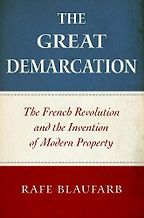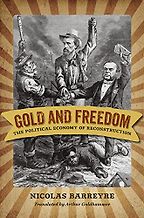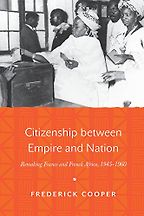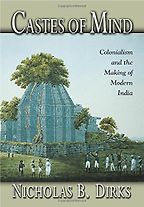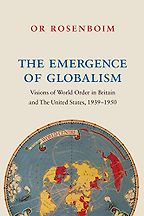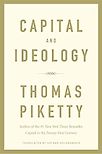Since 2013 and your seminal work on the structure of inequality, published in Capital in the Twenty-First Century, your interest has taken a turn to now focus on the ideologies that have justified and upheld those inequalities throughout history. Why is that?
The many conversations I had after the publication of my previous book allowed me to realise some of the limitations of my research until 2013. My work was probably too centred on Western countries, and thus on the history of how inequalities decreased between the two World Wars—which were, really, mostly Western wars—but increased again after 1945. I also tended to deal with ideologies as if they were black boxes, with historical shocks suddenly transforming how people viewed markets, politics, societies, et cetera. I still find this work relevant of course, but it didn’t leave a lot of room for the study of those ideologies themselves.
Another aspect is that after my long work of data collection on inequalities in the 2000s, which resulted in the two books I wrote with Tony Atkinson and the publication of Capital in the Twenty-First Century, I liked the idea of working again on attitudes towards inequalities, which had always been an interest of mine. I find the study of belief systems to be a lot more fun than calculating ratios between deciles of income.
It’s actually a remarkable difference between your new book and the previous one: while most sentences in Capital in the Twenty-First Century always had one or two numbers in them, Capital and Ideology includes much less mathematical analysis, figures and statistics.
Capital in the Twenty-First Century was really centred on the data I had collected, on the evolution of the relative importance of capital and income, and on the relative share of different deciles of the population in receiving and accumulating resources. In the book, I strictly followed this path in an almost obsessive manner. It was probably one of its strengths, but definitely made it a bit annoying to read! And this obsession with my own data meant that I also rarely cited other academic work.
“I find the study of belief systems to be a lot more fun than calculating ratios between deciles of income”
With Capital and Ideology, I wanted to open up my field of view to study ideologies themselves. It didn’t mean that I couldn’t use data and figures—and one of the latter parts of the book, dedicated to the evolution of voting patterns and electoral preferences, does include a lot of graphs and time series. But I’m convinced that you can’t quantify everything, which is why I decided to go beyond those types of arguments, by using very rigorous academic sources to understand historical periods and societies; ones I’d never worked on personally. That’s why I’m very happy to talk about these books with you: because they were the basis for a lot of my work in the last few years.
Talking of which, let’s start discussing your selection! You first picked Rafe Blaufarb’s work on the French Revolution, entitled The Great Demarcation: The French Revolution and the Invention of Modern Property.
Rafe Blaufarb is a historian who has focused a lot of his work on the French Revolution. I have read many books on this period, and more often than not, they tend to instrumentalise historical facts to use them in 20th-century debates in favour or against modern ideologies such as capitalism, Soviet communism, totalitarianism, etc. But this one was the most interesting to me by far: it sticks to the Revolution itself and delves into what Blaufarb calls the invention of modern property. He doesn’t try to point fingers by choosing sides. All he shows is how terribly difficult it was for revolutionary legislators to separate property rights from political rights and define ‘legitimate’ property, because of how much these concepts were interwoven in 18th-century French society.
This complex web of rights was the very basis of the Ancien Régime society, which presumably made it very hard to untangle?
Before the Revolution, French society was a trifunctional system composed of the clergy, the nobility, and the third estate. And indeed, the two dominating classes (clergy and nobility) had been able to justify their privileges by the idea that this system was based on an exchange of services: they were organising society, for example by maintaining order, recording contracts and transactions, providing spiritual guidance, educating children, etc. But because of this, when the dust settled and time came for the legislators to decide what they wanted this new society to look like, they had a really hard time separating legitimate rights of the clergy and nobility from privileges merely inherited from historical oppression and domination.
Blaufarb especially studies the issue of the corvée, a type of taxation by which landlords expected regular unpaid labour from people living on their property.
The corvées are a good example because, at first glance, they look to our modern eye like an obvious form of serfdom, acquired through violence and domination. But as most of the revolutionary legislators were landowners themselves, they became afraid that reassessing this type of relationship might be going too far. After all, they claimed, was working one or two days a week for free really that different from paying a rent of one or two-sevenths of your work?
Get the weekly Five Books newsletter
An even more difficult case to solve was the lods, a form of payment due to the local lord when a parcel was sold from one person to another on the land they administered. Lods were difficult to completely get rid of, which made legislators try several approaches. The main one consisted of using documents to identify words directly related to serfdom or violent appropriation, as opposed to words more akin to a mutual contract, and trying to rule the legitimacy of each case based on semantics. But of course this was far from easy and straightforward. It seems like a fair system should have also taken into account the amount of property owned by each landlord. It’s not quite the same form of domination to own the land used by one family, 100 families, or 10,000 families—regardless of the words you use to describe this property on paper.
Did the legislators ever consider taxing the landlords more than the rest of the population, to redistribute some of their property?
We can actually find documents showing that a couple of people had the idea of creating progressive taxes on inheritance of wealth, such as the ones that will be in place in the 20th century. But of course, in the early 19th century, this seemed really premature; the political will to go as far as to take excessive wealth and redistributing it was nearly nonexistent.
But what I also like about this book is that Blaufarb shows how non-deterministic this kind of process really is: it’s more a series of struggles that can take quite dramatic turns, based on what actors decide to do. When facing issues that no one had ever even thought of, French legislators had to improvise and decide how to recreate social relations, and what they considered to be a fair system. And in particular, they had to choose where to stop in their efforts to reduce inequalities—that’s a complex question that nobody has ever truly solved, including today.
Do you still see this as an issue for protesters and revolutionary groups in current Western societies? Do you think that they aren’t discussing precisely enough what they’d want to do the morning after the revolution?
Well, the difference with 1789 is that we’ve had two more centuries to imagine a strategy to redistribute wealth and property, and decrease inequalities of power. We still don’t have a magic formula that would solve everything, but we have many more guidelines as to what should be done to make our societies fairer. Of course it doesn’t prevent some people from saying that we shouldn’t open a ‘Pandora’s box of redistribution’, because according to them we’d never know where to stop. This hypocritical discourse existed after the Revolution, and has never really stopped existing since then.
Your second choice deals with a similar historical period, but on the other side of the Atlantic Ocean: Gold and Freedom: The Political Economy of Reconstruction, by Nicolas Barreyre.
This wonderful book looks at the post-Civil War period in the United States, and tries to explain the emergence of a new political conflict between Democrats and Republicans in the thirty years that followed the abolition of slavery. What I found most fascinating in this book is that it helps you understand how the Democratic party, which was the party of slavery, became a century later the party of the New Deal, of civil rights, and of Barack Obama. This transformation looks like an incredible paradox to many, one that can seem completely unbelievable retrospectively, but Barreyre’s analysis of the Reconstruction shows why this evolution actually made sense.
Five Books interviews are expensive to produce. If you're enjoying this interview, please support us by donating a small amount.
Both before and after the Civil War, the Democratic Party developed an ideology that you could call social-nativist, in the sense that they were deeply segregationist against black Americans, but at the same time they were quite egalitarian when it came to white people. And actually, one of their arguments against abolition was that what the Republican elites in Boston and New York really wanted by freeing the slaves was to make more cheap labour available on the street and thus increase profits. In their rationale—sincere or not—this type of domination would be even more violent and detrimental than slavery.
The massive immigration of European workers also quickly came into the picture. Where did Democrats and Republicans stand on the issue?
The Republican elites of the northwest were really worried about immigrants coming from Italy, Ireland, et cetera. They refused any measure to facilitate their integration, including giving them the right to vote (which is also why, incidentally, Republicans never pushed too hard to give freed slaves the right to vote in the South). On the other hand, the Democrats advocated for the use of taxes and redistribution to help these immigrant populations.
“This weird trajectory of a social-nativist party that now attracts the clear majority of African American and Latino votes, is fascinating”
Just like Blaufarb with the French Revolution, Barreyre doesn’t take sides on these issues. He tries to understand how ideologies and discourses on a fair society worked together by looking at many different socio-economic dimensions; a sort of historical and political economy of late 19th-century American society. He studies many other specific debates of the time, including the gold standard, the public debt of the Civil War, protectionism and tariffs… These issues, which can seem technical at first, are very interesting because the social groups that make up the American political landscape wanted to deal with them in very different ways.
This is a very different picture to the traditional left/right dichotomy that European countries are so used to.
For a European researcher like myself, it’s almost refreshing, in a way. This weird trajectory of a social-nativist party that has become, 150 years later, the one that attracts the clear majority of African-American and Latino votes, is fascinating. But the similarities with modern European parties are still there: these days the Democratic Party is also the party of many highly-educated affluent Americans, and one that has lost its appeal in the eyes of the white working class. It also gives us important historical material to think about modern political transformations, in Europe or India for example, with issues that involve both questions of identity and economics.
Your third choice, Frederick Cooper’s Citizenship Between Empire and Nation, also looks at a period that follows a major historical event: the relationship between France and its African colonies after World War II.
Frederick Cooper’s analysis focuses on the ambitious project of the French government in Paris, after 1945, of trying to transform its authoritarian colonial empire into a democratic federation. This Franco-African union involved a parliament in Paris that included up to 100-150 representatives of the colonies—especially from North and West Africa; the situation was much more complex for Indochina or Madagascar, who had already left or were about to leave the imperial federation.
Of course, it never really worked. The French government was willing to allocate a share of parliamentary seats to the colonies, but always made sure that, in the end, the representatives of the metropole kept a large majority of the votes. This was far from egalitarian, since at its height, the French colonial empire had 40 million citizens in France, and 95 million in the colonies. Even when including only African colonies (about 60 million), a purely proportional representation would have meant for the French authorities to give up their power.
But Cooper explains that the failure of this Franco-African project, in the end, contributed to the idea that African countries could themselves create an alliance. What forms did this take?
Indeed it led to the idea that West African countries—and maybe also North African ones—could form federations. For a short time between 1958 and 1960, this took the form of the Mali Federation, which meant to include Senegal, Sudan, Upper Volta (now Burkina Faso), and Dahomey (now Benin). This project had its own weaknesses, and in the end the only two members of the federation were Senegal and Sudan. This created a very unstable relationship, one country, Senegal, having a smaller population but a higher income than the other; and thus not much to gain from putting resources in common.
This alliance also failed, and when the French empire collapsed, what was left was a myriad of small nation states. The limits of these small states were clearly visible to African leaders of the time, especially Léopold Sédar Senghor in Senegal and Félix Houphouët-Boigny in Ivory Coast. They anticipated that, when facing international economic forces and multinational companies, the sovereignty of these new countries would be very limited.
What is the state of the debate on African federalism today?
This debate on federalism, and how to organise a region in the context of a globalised economy of transnational forces, is still very relevant. The questions of common currencies, transnational taxation, freedom of movement, investments in education, can be answered through federalist alliances. And Cooper’s book gives a breath of fresh air, by showing that things could go in many directions, including very hopeful ones. And much is happening in Africa at the moment, mostly around the Economic Community of West African States, which is slowly expanding—Morocco recently requested to join it—and is now discussing the creation of common institutions for budgetary and parliamentary decisions.
For your next choice, you went with Nicholas B. Dirks and his book Castes of Mind, one of the main sources for your own chapter on India in Capital and Ideology. Its central focus is to show that while the Indian caste system pre-existed colonisation, the rigidity that we associate with it was a by-product of the British rule.
India was, in many ways, the most extreme project in the entire history of colonisation. The British government, through military domination, took control of a country with a population almost 10 times larger than its own. The need to understand, rationalise, and organise this massive country led to considerable efforts, including many censuses to classify the population into castes and social categories. This wasn’t just pure bureaucracy: it allowed the authorities to decide which groups to focus on to better dominate them, by raising taxes, maintaining social order, etc.
By doing this, the British imposed a great deal of uniformity and rigidity onto the caste system, while the country was much too large for such generalisations to be accurate. People in India spoke dozens of languages, with tremendous socio-economic and cultural differences between regions, and the caste system was much more fluid than the authorities were willing to allow in a census where simple boxes had to be ticked.
What effects did this have on Indian society in the long run?
In my book, I compare this with a hypothetical situation in which an Indian ruler would have invaded all of Europe, and classified the entire population into small boxes, such as Catalan fruit pickers, Greek nobles, Scottish bakers, Finnish nannies, etc. Not only would these categories have seemed quite strange and irrelevant to us, but they probably would have had an impact on reality anyway. When you dictate that society is organised a certain way for almost a century, and give out rights and responsibilities according to these divisions, you end up creating identities that people truly associate with.
“The caste system was much more fluid than the authorities were willing to allow in a census where simple boxes had to be ticked”
That is the very situation that India has been facing since 1947. Systems of positive discrimination and quotas were created to help the most discriminated castes access higher education and public responsibilities. They haven’t solved everything, but to some extent they’ve bridged the gap between the most and the least privileged social groups. The first time I went to India in 1996, I stayed in Calcutta with the family of my fellow economist Abhijit Banerjee [recipient of the 2019 Nobel Prize in economics with Esther Duflo and Michael Kremer]. I remember reading a lot of books at the time, but having trouble really understanding Indian society. But recently, to prepare the chapter on India in my own book, by reading great works like Nicholas Dirks’s book, and also going back to these censuses themselves, I feel like I’m starting to understand the modern history of this country a lot better.
Finally, you chose Or Rosenboim’s recent book on The Emergence of Globalism, subtitled Visions of World Order in Britain and the United States. Can you introduce it to us?
Or Rosenboim’s book has many interesting parallels with Frederick Cooper’s on African colonies. As early as 1939, everyone in Western countries could feel the world changing: they understood that it was on the brink of war, that the colonial empires were slowly crumbling down, and that both the United States and the Soviet Union had to somehow fit into this global equilibrium. This book is dedicated to the many debates that went on at the time on how to organise this new world. Some of these debates led of course to the creation of the United Nations—which is, in the end, quite a weakly integrated organisation—but also to many ideas about federalism.
For example, few people know about the fascinating discussions between British and French intellectuals on what a possible Franco-British federation could look like after the war. In March–April 1940, they gathered in Paris and imagined this potential alliance, but with many different forms in mind. Some people’s intentions, such as Friedrich Hayek’s, was to prevent the advent of socialism and general redistribution, and preserve free market competition. On the opposite end, intellectuals like Barbara Wootton or William Beveridge—who later founded the National Health Service in the UK—were interested in redistribution, social security systems, progressive taxes on wealth and income, et cetera. Some others fell in the middle, such as Lionel Robbins, accepting the idea of free market competition but implying that a federal power and federal redistributive taxation could step in, if the flow of capital didn’t automatically correct for inequalities.
Get the weekly Five Books newsletter
These early debates were quite prescient; this range of thought seems to still be the undecided issue in today’s European Union.
This opposition indeed came back with the creation of the European Economic Community, and still holds back the EU. Of course, it’s not like Friedrich Hayek’s ideas completely won. His book Law, Legislation and Liberty went very far with the idea of creating institutions that would truly constitutionalise private ownership and prevent redistribution. But the EU’s refusal to go beyond purely economic and commercial federation means that it looks much more like what Hayek wanted than Wootton and Beveridge’s dream. Given the incapacity of social democrats to create transnational forms of democracy and fiscal justice in the last few decades, I think it’s time for Europeans to have this debate again.
“All the graphs and tables in the world will never reach the expressive power of great novels”
Beyond these historical sources, both of your last books also include quite a few literary references—such as Balzac, Austen, Adichie, or Fuentes—which you don’t find in most economics books. Do you think that such works are underestimated when it comes to describing the reality of times, places, or societies that can seem too distant to the reader?
I do believe that they are under-utilised historical sources, but also a very good way of looking at the consequences of money and social inequalities on the lives, hopes, and dreams of individual people. All the graphs and tables in the world will never reach the expressive power of great novels, and these works of literature truly helped me to better grasp the daily reality of these societies.
This interview with Thomas Piketty was conducted in French and translated by Edouard Mathieu.
Five Books aims to keep its book recommendations and interviews up to date. If you are the interviewee and would like to update your choice of books (or even just what you say about them) please email us at [email protected]
